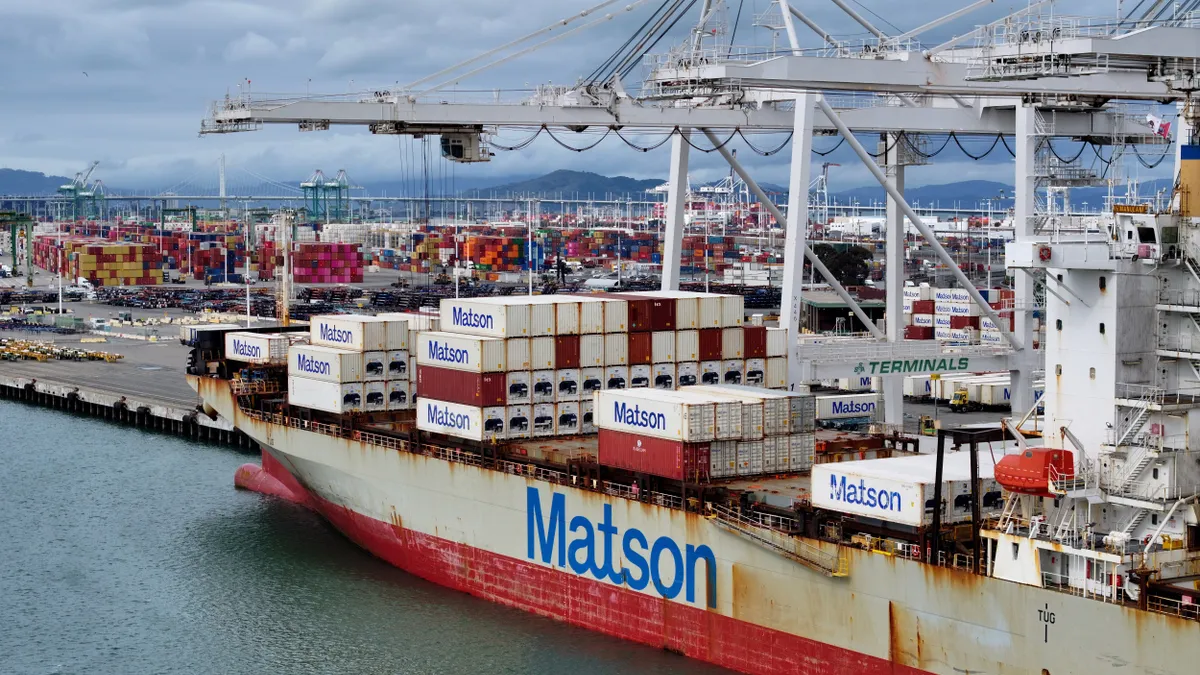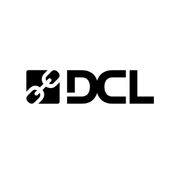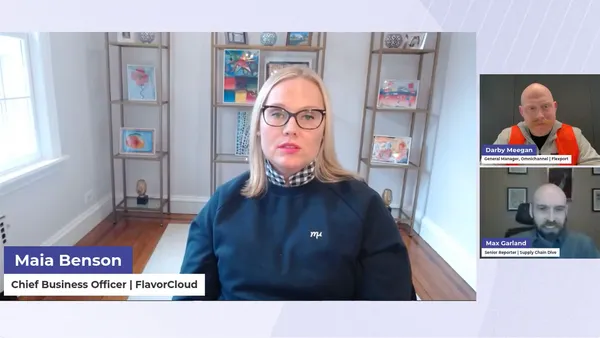Dive Brief:
- About nine in 10 companies now include tariff-related clauses in some of their contracts as they scramble to mitigate the potential risks of global trade disruption, according to survey results released Tuesday by contract management firm Agiloft.
- Including tariff-specific language has become a way to “hedge against uncertainty” in pricing, sourcing, delivery timelines and compliance requirements, according to the report.
- “This indicates the reality that tariffs are no longer isolated or short-term: they are persistent and unpredictable enough to warrant consistent contractual safeguards,” the report said.
Dive Insight:
The Trump administration’s tariffs are forcing companies to closely review their contracts with supply chain partners, according to a separate report published in August by law firm Foley & Lardner.
“In conducting a review of your contracts to determine how increased tariffs will affect your business, one of the first places to check is the pricing provision,” the article said. “The pricing provision of a contract often indicates what is and is not included in the price.”
The default under U.S. law is that the importer of record is liable for paying the tariffs, but contract provisions may allocate the tariff risk — in whole or in part — to another party, attorneys at Skadden, Arps, Slate, Meagher & Flom wrote in a June report.
Agiloft’s research found that nearly half of businesses are “overwhelmed by the sheer volume of contracts requiring review and renegotiation.”
About seven in 10 respondents across the U.S. and U.K. indicated that the legal department is taking the lead when it comes to reviewing contracts or adding tariff-related clauses to them, according to the study. Finance came in second, at 45%.
“This reflects the financial implications of tariffs — from cost modeling and margin protection to currency exposure and tax considerations — which require input from beyond the legal lens,” the report said.
The U.S. government raked in a total of $165 billion in tariff revenues from January through August, according to Treasury Department figures.
As of June, U.S. companies have shouldered 64% of tariff costs, with U.S. consumers absorbing 22% of them, according to Goldman Sachs.
The Trump administration may have to refund at least some of the funds if a recent ruling against its tariffs is upheld.
A federal appeals court on Aug. 29 ruled that President Donald Trump’s use of emergency powers to impose broad tariffs was illegal. The administration has asked the U.S. Supreme Court to review the decision before it takes effect on Oct. 14.
If the ruling stands, the U.S. government could have to return billions in tariff revenue it has collected from businesses, according to a CBS News report. For now, Trump’s appeal leaves uncertainty for companies “struggling to balance raising prices to cover the cost of levies against potentially turning away customers,” the report said.
Tariff changes and political uncertainty are forcing companies to revisit contractual agreements repeatedly, increasing workload, stretching legal resources and sometimes delaying business decisions, Agiloft found.
“Trade and political uncertainty are reshaping how companies manage contracts, forcing teams from Legal to Finance to Procurement to juggle frequent contract revisions, longer approval cycles, and new clauses designed to absorb risk,” the report said.
Agiloft said it surveyed 600 business professionals — 500 based in the U.S. and 100 in the U.K. — representing a diverse cross-section of industries, company sizes and business functions.















